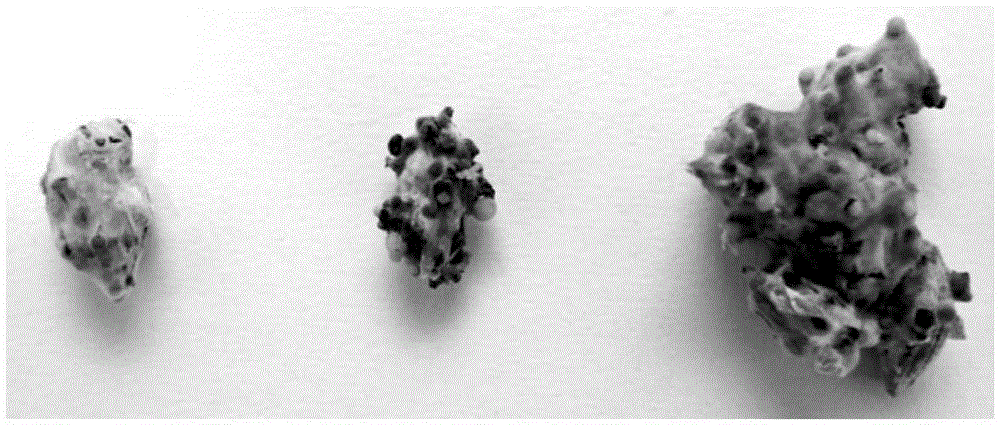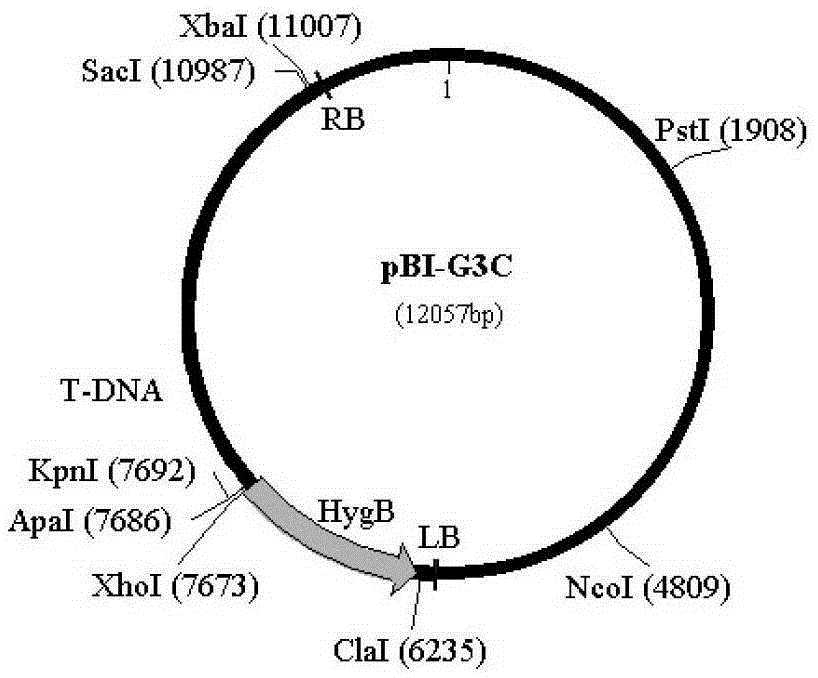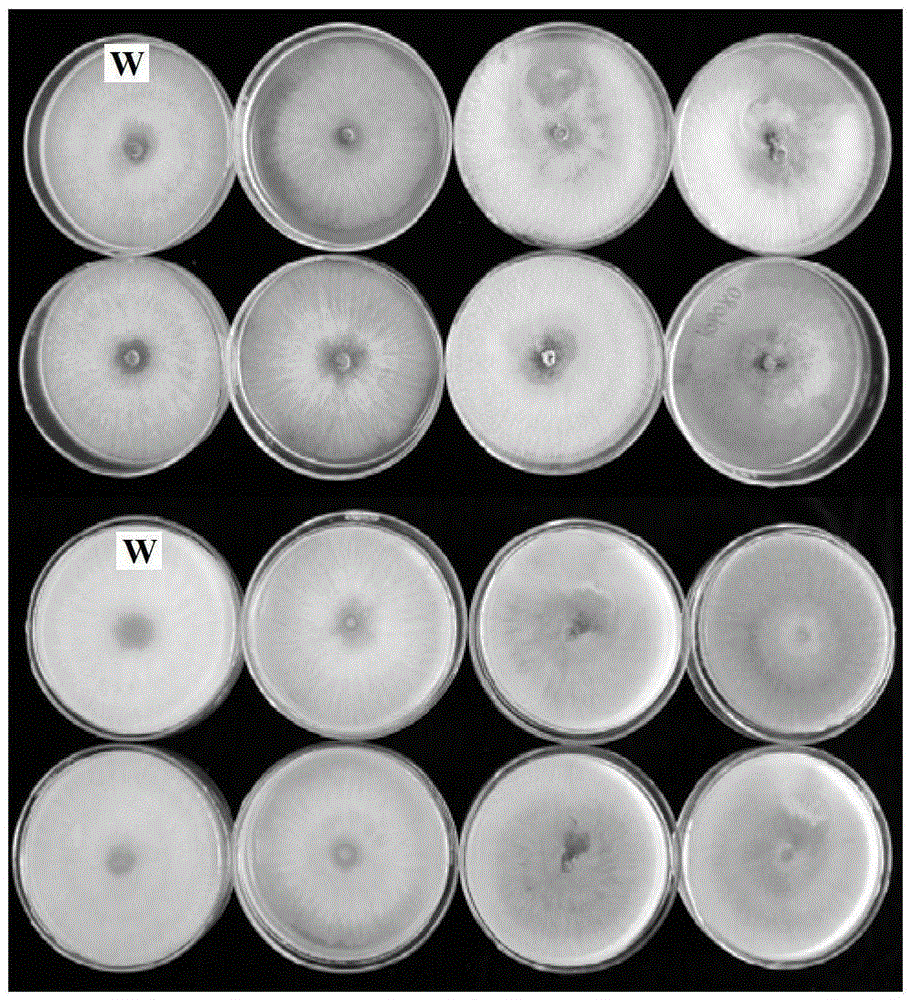A method for preparing transformant of apple tree rot fungus and gfp marker strain
A technology of rot pathogen and apple tree, which is applied in the fields of transformant of apple rot pathogen and its preparation, GFP-labeled strain of apple rot pathogen and its preparation, and can solve the lack of efficient and stable genetic transformation technology system and transformation of rot pathogen of apple tree Low efficiency, research on pathogenic process and mechanism of rot pathogen infection, etc.
- Summary
- Abstract
- Description
- Claims
- Application Information
AI Technical Summary
Problems solved by technology
Method used
Image
Examples
example 1
[0089] Example 1: Construction of the T-DNA random insertion mutant library of the apple tree rot fungus bacterial strain LXS080901
[0090] 1. Preparation of conidia of transformed recipient apple tree rot fungus LXS080901
[0091] The preserved pathogenic rot strain LXS080901 was inoculated in PDA medium, and cultured in constant temperature and dark at 25°C for 3 days. Inoculate the activated apple tree rot pathogen into a cake (diameter 6mm) on the plates prepared by the following 6 media, and continue to culture in a 25°C incubator in the dark. When inducing sporulation in the sixth medium described below, put sterilized apple branches into the sterilized apple branches after the mycelium of the rot pathogen grows on the PDA medium, and place them under a black light (365nm) for induction. The formulations of the 6 media are as follows:
[0092] (1) PDA medium Weigh 200g of peeled potatoes, add an appropriate amount of distilled water to boil for 30 minutes, filter with...
Embodiment 2
[0156] Example 2: Observing the infection process of pathogenic bacteria using the GFP-labeled strain of putrefactive bacteria LXS080901
[0157] 1. Acquisition of the rot pathogen LXS080901GFP marker strain
[0158] The constructed expression vector pHG-C, which uses the hygromycin resistance marker gene as a selection marker and constitutively expresses egfp, was transformed into Agrobacterium, followed by the method described in Example 1 to obtain a large number of transformants. Pick the transformants, and observe under a fluorescent microscope (LeicaDM2500) whether the mycelium of each transformant can produce green fluorescent protein under the excitation of a 488nm blue excitation light source. The results showed that 96.7% of the picked transformants could express strong green fluorescence, and the fluorescence observation results of some transformants can be seen in Figure 6 .
[0159] 2. Detection of the genetic stability of the rot pathogen LXS080901GFP-marked s...
Embodiment 3
[0168] Embodiment 3: Feasibility analysis embodiment
[0169] Utilize the method provided by the present invention, set up the genetic transformation system of multiple filamentous fungi such as pear tree rot fungus (Valsamali), apple anthracnose fungus (Colletotrichmgloeosporioides), cherry dry rot fungus (Phomopsisperniciosa), prove that the method provided by the present invention is stable properties and scope of use. Taking pear tree rot fungus and cherry dry rot fungus as examples, the Agrobacterium-mediated fungal genetic transformation method provided by the present invention will be described in detail below.
[0170] 1. Genetic transformation system of Agrobacterium-mediated pear rot pathogen
[0171] The activated pear rot fungus LXS240101 was inoculated onto PDA medium, cultured in dark at a constant temperature at 25°C until conidia were produced, and the conidia were picked and diluted to 10 with Agrobacterium EHA105 containing plasmid pBIG3C. 6 cells / mL, and t...
PUM
 Login to View More
Login to View More Abstract
Description
Claims
Application Information
 Login to View More
Login to View More - R&D
- Intellectual Property
- Life Sciences
- Materials
- Tech Scout
- Unparalleled Data Quality
- Higher Quality Content
- 60% Fewer Hallucinations
Browse by: Latest US Patents, China's latest patents, Technical Efficacy Thesaurus, Application Domain, Technology Topic, Popular Technical Reports.
© 2025 PatSnap. All rights reserved.Legal|Privacy policy|Modern Slavery Act Transparency Statement|Sitemap|About US| Contact US: help@patsnap.com



